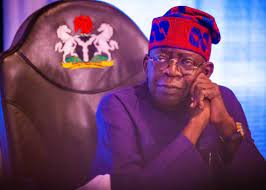The point being made that the IMF and the World Bank lend ‘critical support’ to countries around the globe is well noted. However, the real issues go beyond ‘lending support’ to countries. More pertinent issues are the associated costs, the outcome and impact on the society, of that support. If you support a neighbour in distress to commit suicide, you should not expect a ‘thank you’ note from his children!
This ‘debate’ will be of interest to Nigerians as President Tinubu embarks on major market-based reforms to chart a new economic direction for Nigeria. To many Nigerians, he is trying to follow in the footsteps of President Babangida who, in the 1980’s, implemented an IMF-imposed Structural Adjustment Programme (SAP).
The IMF champions market-based reforms and does not apologise for that. IMF policy prescriptions are often seen as obnoxious and anti-poor. The World Bank is often smarter as it pretends to be pro-poor. It is often said you need to keep both the IMF and the World Bank. (Actually, the joke around the globe is that you either get married to both or get married to the IMF and keep the World Bank as a sidekick).
One of the key principles underpinning IMF prescriptions is that the market be allowed to function in determining key prices to eliminate persistent price distortions occasioned by government’s interventionist policy. The market is to determine ‘appropriate’ exchange rates, wages, interest rates, electricity tariffs and prices for PMS etc.
These principles are as controversial as the IMF policy prescriptions which include breaking government monopoly in key sectors; making governments leaner to reduce costs of governance and to engender efficiency in service delivery; budget cuts designed to ‘discipline aggregate demand’ to reduce deficits and fight inflation; and the liberalisation of trade and payments system: including a non-discriminatory (import) tariff structure and a market-determined exchange rate.
The IMF will confidently assert: ‘Once you do these you will get the maximum’.
One question, among many, is whether ‘IMF Principles’ should be the ‘broad philosophical principles’ which will drive Nigeria’s economic growth? How transformative are these prescriptions? May be a second question.
Different countries have implemented IMF-prescribed reforms with varied outcomes over time and space. It is easy to point to ‘success’ stories around the world…. Vietnam, Malaysia, Indonesia, South Korea etc. but it is difficult to ignore the disastrous consequences of SAP in Nigeria and indeed in several other countries.
After IBB unleashed his market forces on the economy, Nigeria certainly didn’t get the maximum…. Remember that IBB completely trusted the ability of the market mechanism to determine ‘realistic’ prices and ‘appropriate’ rates. He, therefore, jettisoned development planning and opted for what Professor Aluko once described as ‘trial and error economics’.
IBB’s SAP abolished marketing boards, which hitherto regulated agricultural commodity prices, dismantled internal price controls, promulgated the SFEM (later IFEM) decree of 1986 to liberalise foreign exchange dealings, deregulated interest rates and allowed banks to fix deposit and lending rates – all ‘in line with the dictates of the markets’. Interbank rates soared to 50% (and beyond) and lending rates were unquotable! The naira was battered beyond recognition: it depreciated from US 1$=89K in 1985 to US 1$=N22 in 1993.
IBB’s expectations were that these measures would improve the competitiveness of local industries, promote exports, and provide greater access to foreign direct investments. None of these happened. It was impossible for the private sector to withstand such sudden, excruciating shocks. IBB’s SAP adversely affected the fortunes of several businesses in the small and medium scale range. IBB’s private sector shrank!
Indeed, IMF-styled market-based interventions almost always create difficulties for businesses, whether micro, small, medium, or large. SAP contributed to the re-shaping of the trajectory of the northern economy, as the region lost nearly 70% of its manufacturing firms. The formal sector of the economy is yet to recover from SAP-induced dislocation.
Market-based reforms also almost always inflict excruciating pains on citizens, worsen poverty, unemployment and living standards. The recent withdrawal of subsidy payments has exacerbated Nigeria’s inflationary trends and has consequently lowered real wages, reduced citizens’ buying power and pushed millions into poverty.
President Obasanjo’s attempt to implement market-based interventions was perhaps more successful than IBB’s. OBJ achieved macroeconomic stability and the economy grew faster than at any period in the recent history of Nigeria. There is no denying the fact that Nigeria has derived enormous benefits from OBJ’s creation/facilitation of a liberal environment to facilitate private sector participation in key sectors of the economy. Today, the IT sector is undeniably the fastest-growing services sector in the Nigerian economy.
But OBJ’s numerous promises of new and improved social and economic infrastructure (10,000MW of electricity, for example) and its target of seven million new jobs by 2007 could not be delivered. OBJ’s, like IBB’s market reforms had limited impact on incomes, jobs, and poverty. By 2010 Nigeria was ranked amongst the poorest countries in the World, with more than 54 million people -36% of the population – living in extreme poverty.
I suspect that OBJ’s partial success in reform implementation was aided by the ‘maturity’ of the economy in the 2000s. IBB’s economy, smarting from the import substitution/import licencing era, was inarguably more distorted and structurally defective and therefore slower in response to market reform initiatives. Perhaps too, capacities and competencies and strategies for change differed between the two regimes.
So, what should we say to our president?
I am a market reform enthusiast, although I remain sceptical about the ability of the market system to determine prices and allocate resources fairly, justly and equitably. The market system must be appropriately guided especially in a developing economy with severe structural defects.
I am also a realist. State interventionist policies or meddlesomeness in the economy have led Nigeria to where we are today: a struggling nation with a fragile economy and widespread poverty. State intervention has been neither judicious nor responsible.
So, Mr President should accept to dine with the IMF if they invite him. But he must use a long spoon. His pursuit of the ‘the market strategy’ must be in tune with the contemporary realities of the Nigerian society and the dynamics of the global economy.
He must not fall for the ‘small government’ argument as is being canvassed by the IMF. A ‘small government’ cannot be the foundation upon which the conditions for rapid growth and development can be erected. A ‘big government’ with efficient institutions and appropriate infrastructure is the key to economic growth.
IMF’s ‘open economy’ agenda has its attractions. No country can prosper by isolating its industry, agriculture and indeed, services from the rest of the world, forever. Nigeria must remain open to leverage private capital, skills and technology from around the globe. There is a caveat, however. We must be more measured in our approach. Unrestrained importation of commodities that would ‘compete’ with domestic production will be counterproductive. It will hurt our industry and agriculture with disastrous consequences on incomes, jobs, and poverty. So, we must promote ‘regulated openness’ by ensuring that protection is selective, time-bound and tied to specific objectives – such as ability of the protected sector to generate foreign exchange and its capacity for value-addition and backward/forward integration.
Mr President should please not contemplate a budget cut on social infrastructure even if they, the IMF, insist. Spending on education, health and social programmes is already low even by developing country standards. According to the World Bank, spending on education (2021-2022) was a paltry 0.5% of GDP, on health 0.4% and less than 0.1% on social protection. This was far below the 1.2% of GDP spent on fuel subsidy in the same period.
Mitigating the negative impact of market-based reforms requires governments to spend more on social assistance, community empowerment, human capital development and sustainable livelihoods all designed to reduce the levels of vulnerability and deprivation of the citizens.
Mr President should be more circumspect when it comes to the determination of ‘appropriate prices’. Unleashing market forces to determine an appropriate exchange rate, cost-reflective electricity tariff and PMS price at one and same time is certainly an overkill. Reform initiatives must be carefully planned and sequenced. He must be more strategic in the design and implementation of these mitigating measures. Mr. President’s current ‘palliatives’ are, in truth, pitiable and ineffectual.
Let the poor breathe. Do not tax them to stupor. True, Nigeria is yet to optimise its independent revenue potential. Increased local revenues (plus expenditure controls) will undoubtedly relax the fiscal constraint and narrow the budget gaps. But how far can the government go with internal revenue drive without imposing additional burden on its poor impoverished citizens?
In truth, majority of market operators in the informal sector (which is more than 70% of the economy) have limited ability to pay (in both fairness and practical terms). Government can review excise taxes on “sin” and non-essential/luxury goods, such as alcohol and cigarettes. Government can also focus on a review and rationalisation of the many ineffective tax incentives that abound.
We should tell Mr. President to insist on fiscal efficiency. The IMF will agree with him on this! MDAs must be challenged to adopt a sound fiscal management strategy so as to reduce wasteful spending. Government spending is often wasteful, imprudent, and lacking in priorities. In particular, the cost of running the government will be horrendous – with 48 ministers and over 500 government parastatals, commissions and agencies (with overlapping functions and mandates) and more than 1,000 Assistants….across the executive and legislative arms. Mr. President may wish to revisit the Joda and Oronsaye Reports. He may also wish to review government procurement processes to ensure value for money and eliminate all leakages.
























